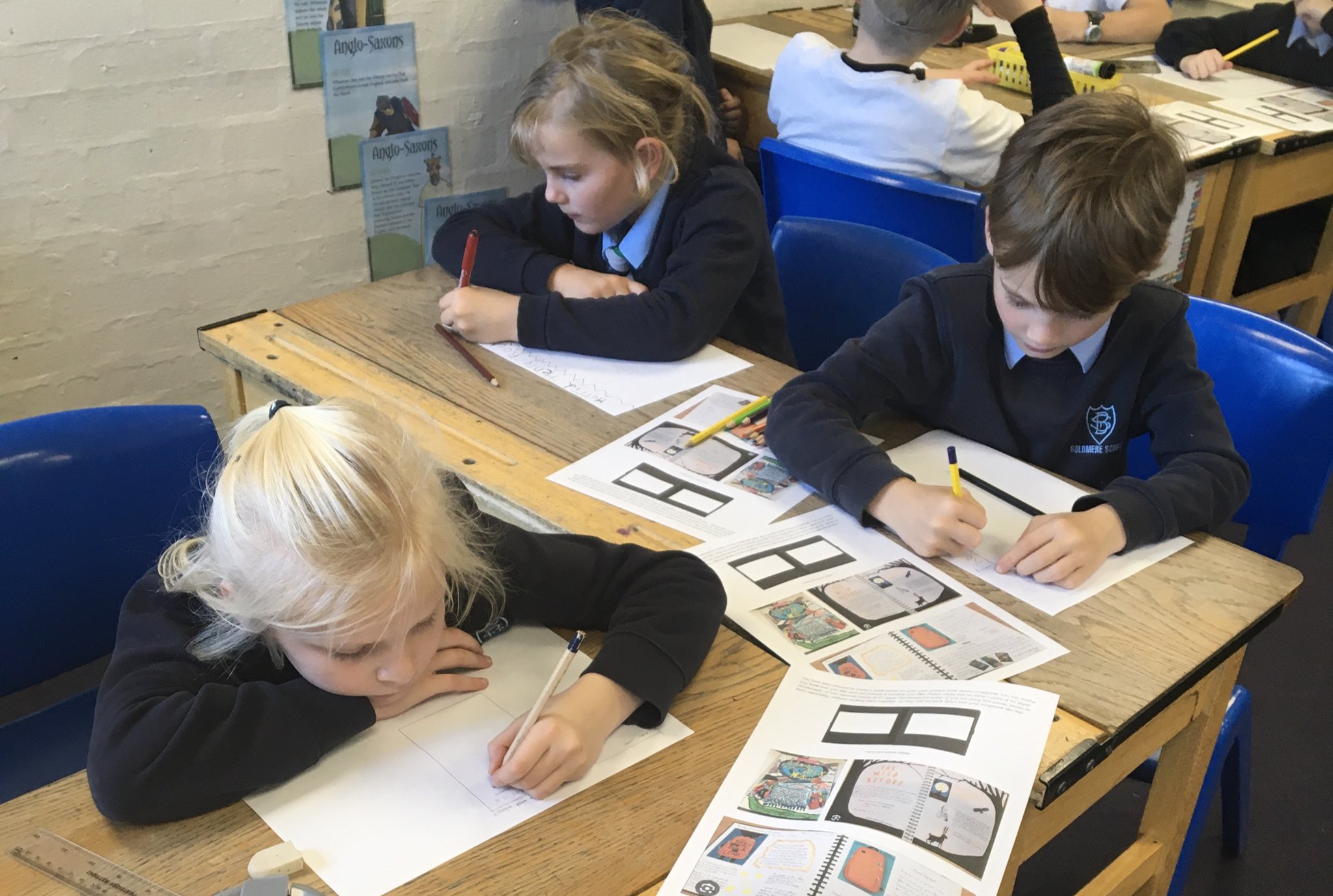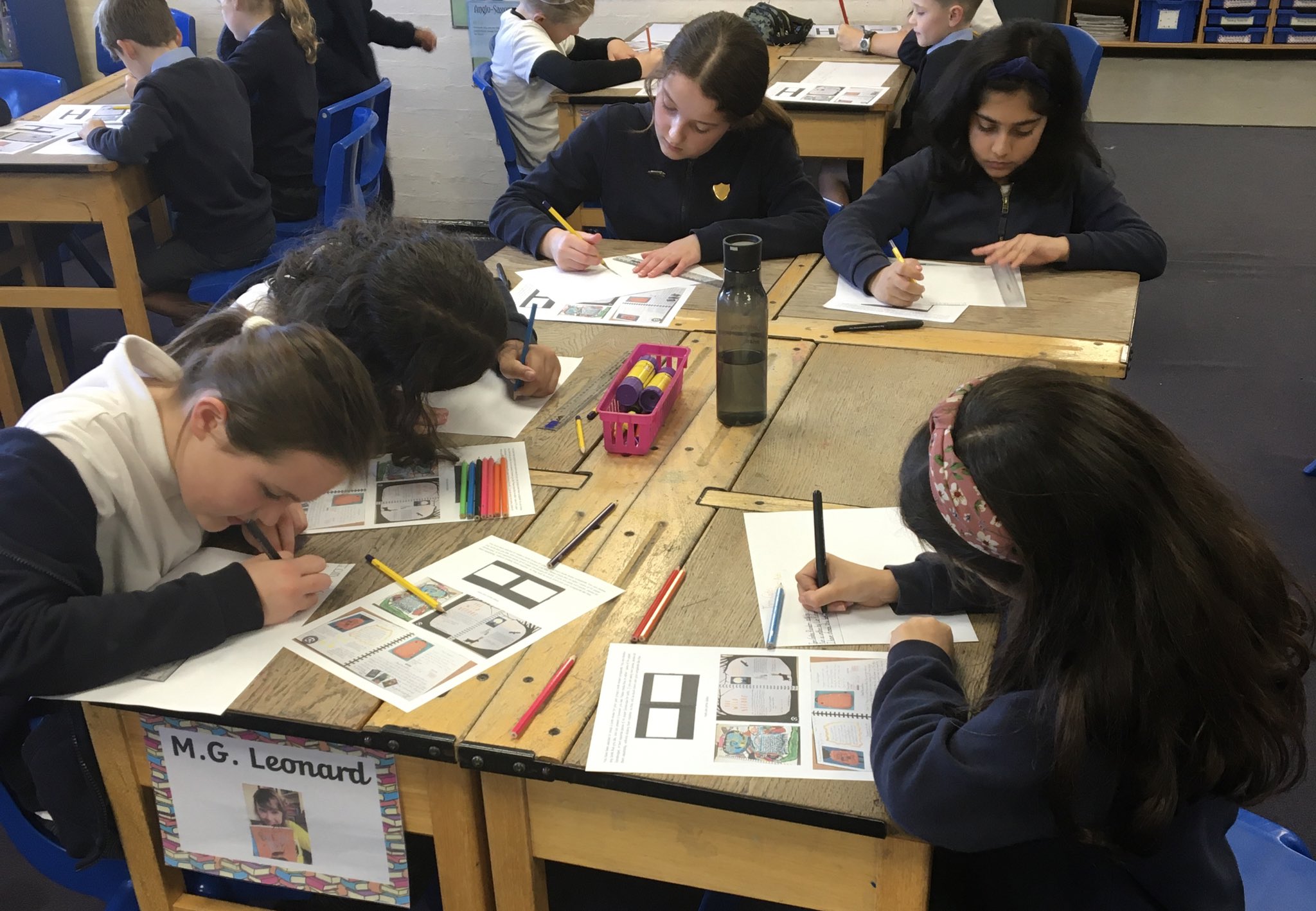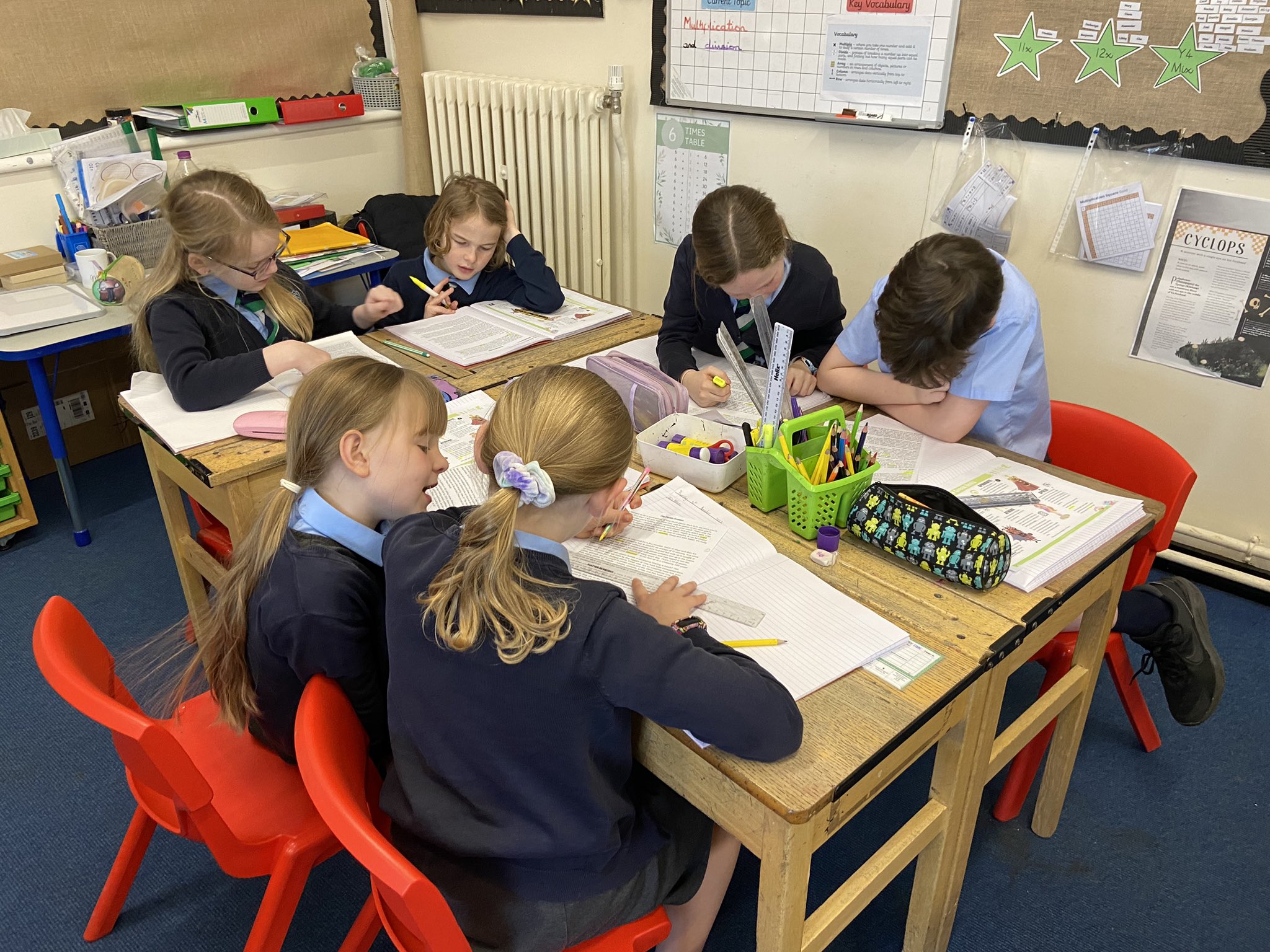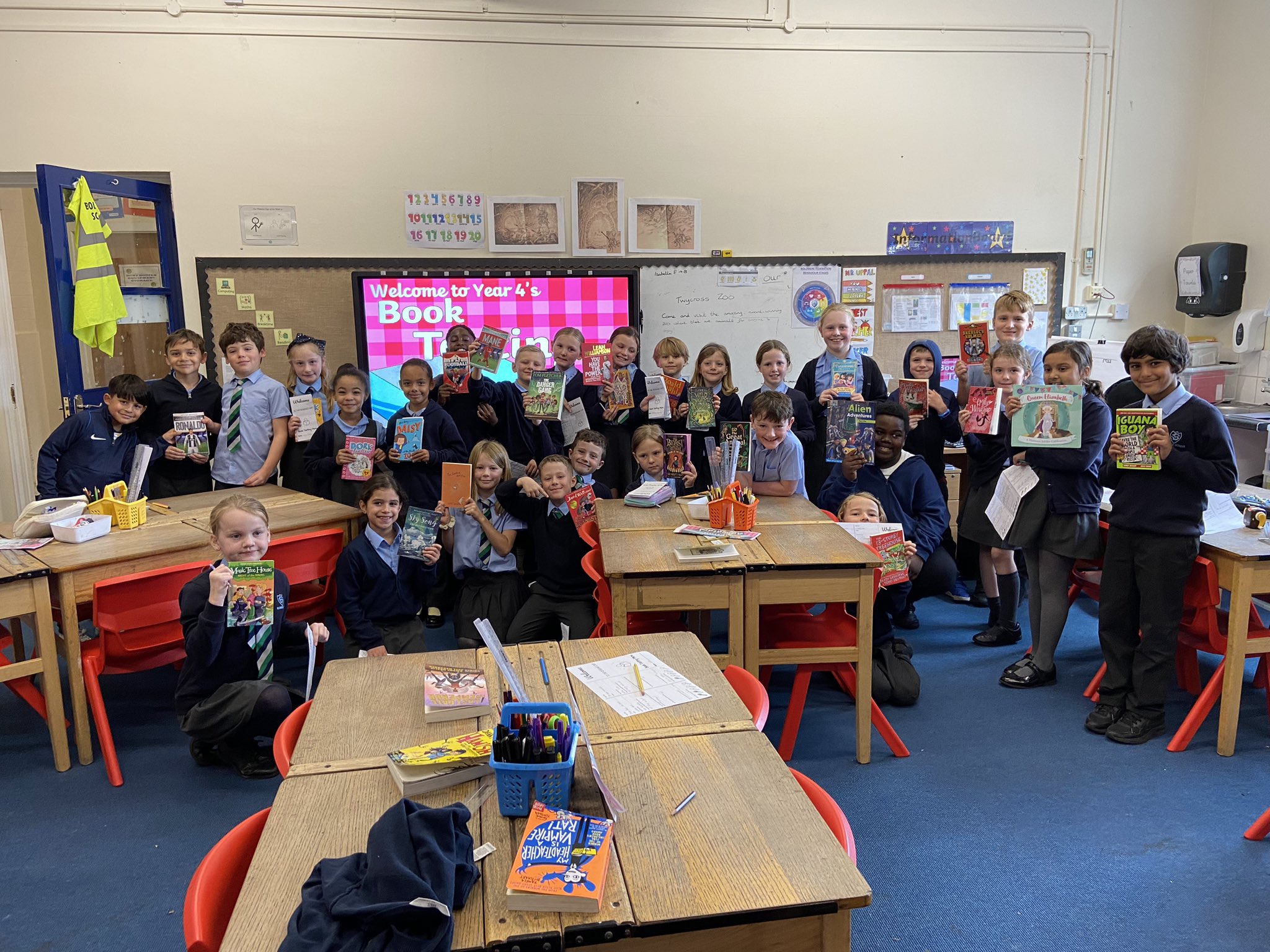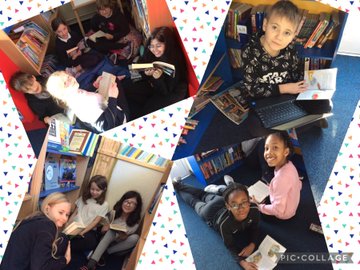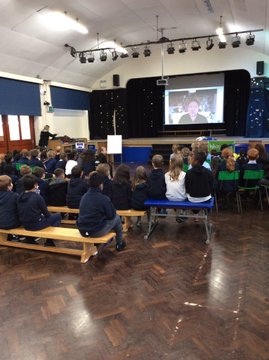Reading
Reading
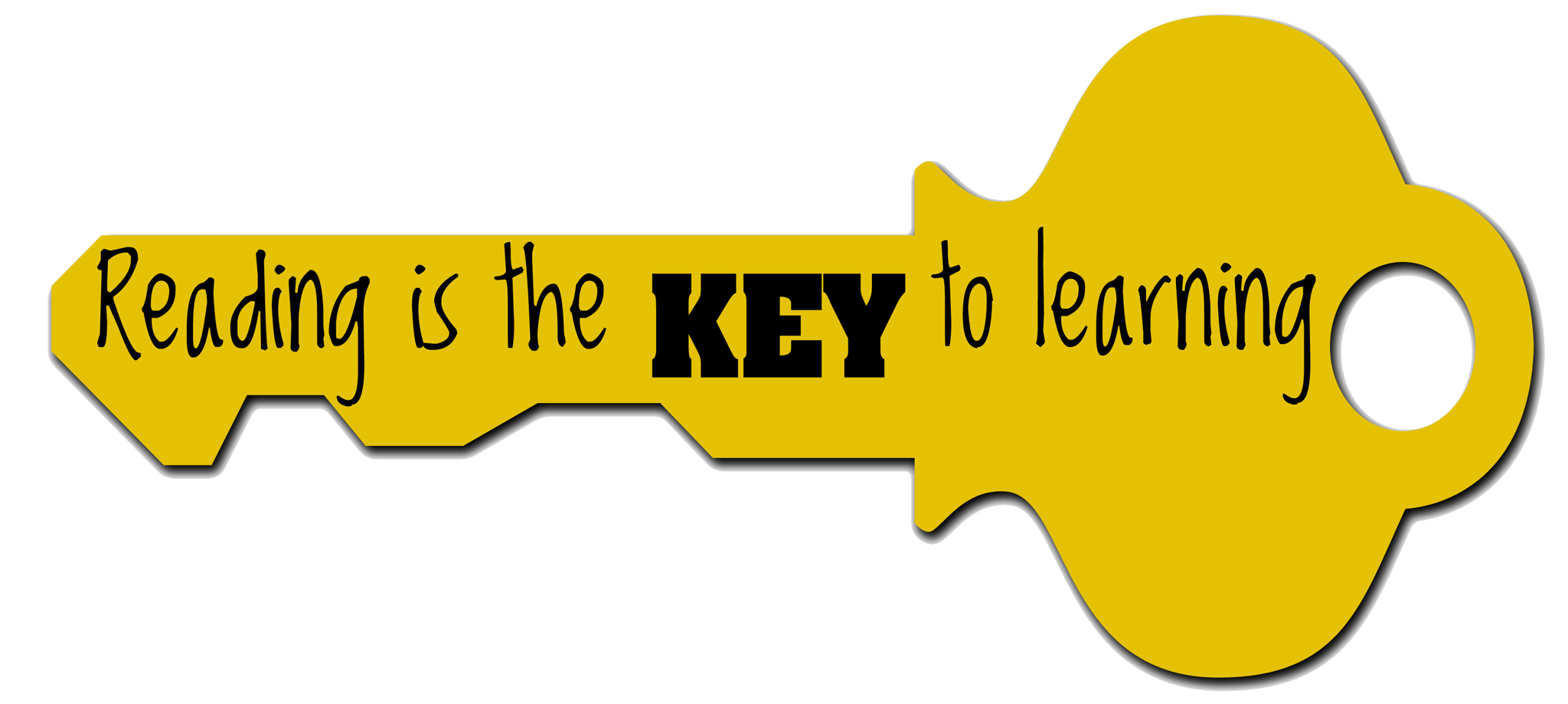
'Through reading, pupils have a chance to develop culturally, emotionally, intellectually, socially and spiritually. Literature, especially, plays a key role in such development. Reading also enables pupils both to acquire knowledge and to build on what they already know.'
Reading is an absolute priority of the school, as we know that when children have fluency and comprehension they are better able to fully access our rich and broad curriculum. We have a holistic approach to ensure that reading weaves through all areas of the curriculum to widen imaginations, ignite curiosity and enable children to make greater links across the curriculum.
Our curriculum has been designed from an action research project where we visited several geographically diverse schools. With the National Curriculum is at its core, it is enhanced by school’s structure, delivery and planning. We know that reading is an entitlement for all children and that reading is key to academic success and by centring reading at the core of our curriculum, we instil in children an understanding that reading is a transferrable skill that will benefit them in all subjects. We ensure that children read within and outside of reading lessons, where they read for a range of purposes. For a few children, we use Sound! Start Phonics to provide targeted, daily teaching to address identified gaps in word reading.
Reading Together: Teachers ensure that all children are heard read regularly across the half term in every year group. Year 6 children are given a ‘buddy reader’ from Year 3, with opportunities across the year to share stories. Teachers read a class novel daily in Key Stage 2 as a shared reading opportunity and a time to enjoy stories together. During regular assemblies, teachers read carefully selected picture books as a gateway to explore inclusivity, diversity and our core school values.
Core Texts: Core texts are carefully selected to engage, challenge, reflect and broaden their understanding of the wider world.
Book Talk: Children use the ‘Jane Considine’ Reading Rainbow based on the ‘Hooked on Books’ approach to read and respond to a variety of texts. The approach develops fluency, oracy skills, incorporating high utility tier 2 words and a wide range of texts.
Whole Class Reading : VIPERS. These lessons develop key skills children need in order to improve their comprehension and understanding of a text, with a focus on vocabulary development.
Fluency: Using EEF guidance, teachers support pupils to develop accuracy, automaticity and prosody using a range of strategies such as choral and echo reading.
Impact:
Children leave Boldmere Junior School with a love of reading and are able to talk about a wide range of authors and genres, and those that are of interest to them.
Due to the deliberate choice of texts that children encounter throughout their time at Boldmere Juniors, children are prepared for their reading journey at secondary school.
Pupils explore and learn about the world beyond Boldmere through a diverse range of texts, authors, characters and life circumstances by gaining the skills of reading and learning through talk.
Year 3
.png)
Year 4
.png)
Year 5
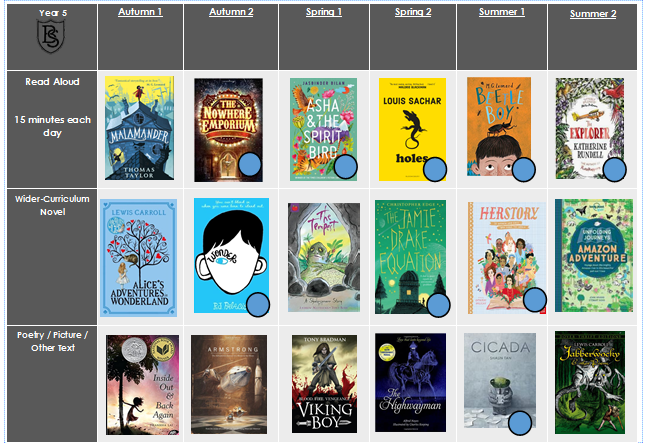
Year 6
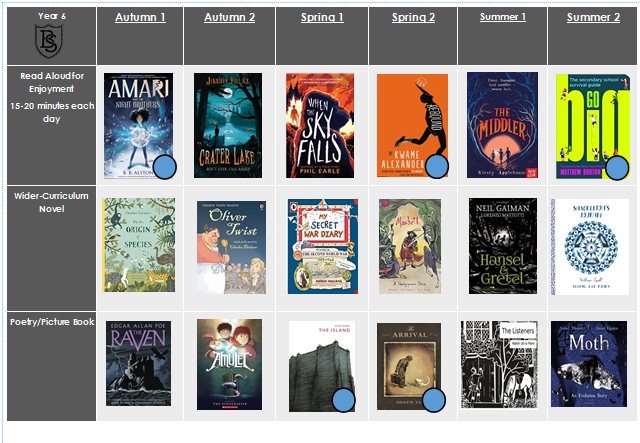
What does Reading look like at Boldmere?
Reading is a high priority. Just because we are a Junior School, doesn't mean we don't hear children read! In fact, every teacher hears every child in their class read on a two-weekly cycle. Children are taught in whole class reading sessions, using high quality, challenging texts with the aim of expanding pupils' vocabulary and deepening their understanding and also using a Book Talk approach, which we have adapted to suit the needs of our children.
Using evidence-based research by the Education Endowment Fund, reading fluency is of high priority in lessons, as we know when pupils read fluently, their cognitive resources can be redirected from focusing on decoding and onto comprehending the text. Our aim is for children to read with accuracy, automacity and prosody. We also place high emphasis on pre-teaching the text for children that may, for example, require background knowledge or vocabulary to access the text.
Reading Champions
Let our Reading Champion tell you what Reading is like at Boldmere ...
Reading Champions
As part of their role, the Reading Champions are introducing year group reading scrapbooks. Here they are in their weekly meeting!
Boldmere Core Texts
At the Junior School, we have developed a reading spine of core texts for each year group in Key Stage 2. The texts chosen are progressive in terms of challenge and content. The 'spine' details: the class novel, which is read daily to the children; a wider curriculum text, which links to the topic and other subjects from the curriculum and a poetry/picture book/Shakespeare text to be studied.
Our teachers love to read to the children and this has been described as one of the children’s favourite time of the day. Teachers’ read the class novel to the class daily as a way of promoting reading in school and is an opportunity to share a quality text and bring it to life so that pupils can experience the pleasure and affective impact of being immersed in a story.
Each year group also has 'recommended reads' which are given to children at the start of the year (found at thereaderteacher.com). Teachers also have a range of further fiction, non fiction, poetry and picture books and songs, which teachers can dip into to aid further study, comparisons and enjoyment of reading. These lists are updated regularly to ensure that we are providing children with a range of relevant, up to date texts, along with the classics.
Running alongside our core texts is the Boldmere Poetry Curriculum. Feedback from our pupils told us that children love to read and perform poems. From this, we have developed our own poetry curriculum, where each year group studies a poem every half term, which have been deliberately chosen to cover a diverse range of topics, poets and from archaic to modern. Children perform poems to the rest of the school each term.
Book Talk Lessons
Along with our VIPERS reading lessons, we have introduced an additional approach to the teaching of reading across the Junior School, using Jane Considine's 'Hooked on Books' approach.
Children take part in Book Talk sessions weekly where they read a variety of texts, with a group of their peers, individually or as a whole class. Children use the 'Reading Rainbow' to read and respond to texts through different lenses within 3 different zones of reading: The Fantastics, The Stylistics and The Analytics. Book Talk is key to developing oracy skills. Children collaborate in pairs or groups using sentence stems and are introduced to high utility (tier 2) words to develop a Book Talk response.
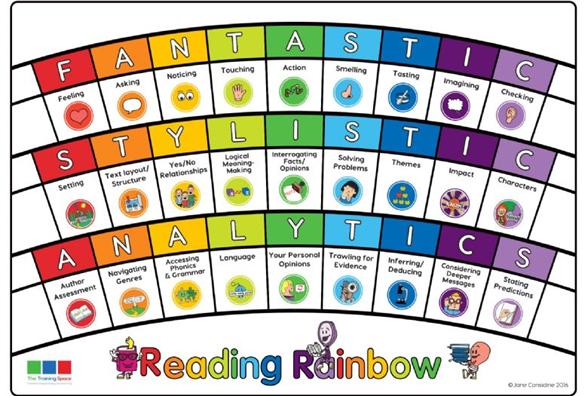
Here are some examples of children engrossed in Book Talk lessons:
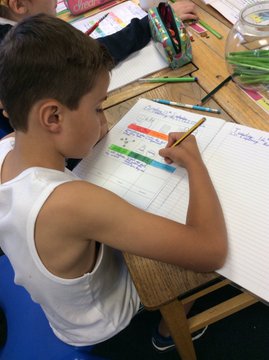
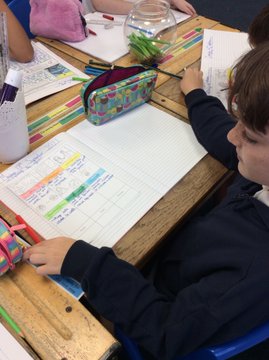
Whole Class Reading Lessons
Teaching whole class reading lessons means that all pupils read with the teacher more often, moving faster through more or longer texts, and benefit from the teacher’s expert explanations, modelling, questioning and feedback. Teachers also integrate topic-related reading, reading as a stimulus for writing, daily reading aloud to the class and the ‘class novel’ to the lessons.
In the children's books, you might see the acronym VIPERS - these are the key skills that children need to know and understand in order to improve their comprehension of texts. These skills are not always taught in isolation as they form building blocks for each other. VIPERS is not a reading scheme but rather a method of ensuring that teachers ask, and students are familiar with, a range of questions.
VIPERS
In the children's books, you might see the acronym VIPERS - these are the key areas that children need to know and understand in order to improve their comprehension of texts.
What does this acronym mean?
V is for Vocabulary
When you answer questions linked to ‘V’, you will need to give and explain the meaning of words in context
I is for Infer
When you answer questions linked to ‘I’, you will make inferences (informed guesses) from the text and you will explain/justify using evidence.
P is for Predict
When you answer questions linked to ‘P’, you will predict what might happen from details stated and implied
E is for Explain
When you answer questions linked to ‘E’, you will identify and explain how the meaning is enhanced by the author’s choice of words and phrases. You will make comparisons within the text.
R is for Retrieve
When you answer questions linked to ‘R’, you will find and record key information/key details from fiction and non-fiction.
S is for Summarise
When you answer questions linked to ‘S’, you will summarise the main ideas from more than one paragraph.
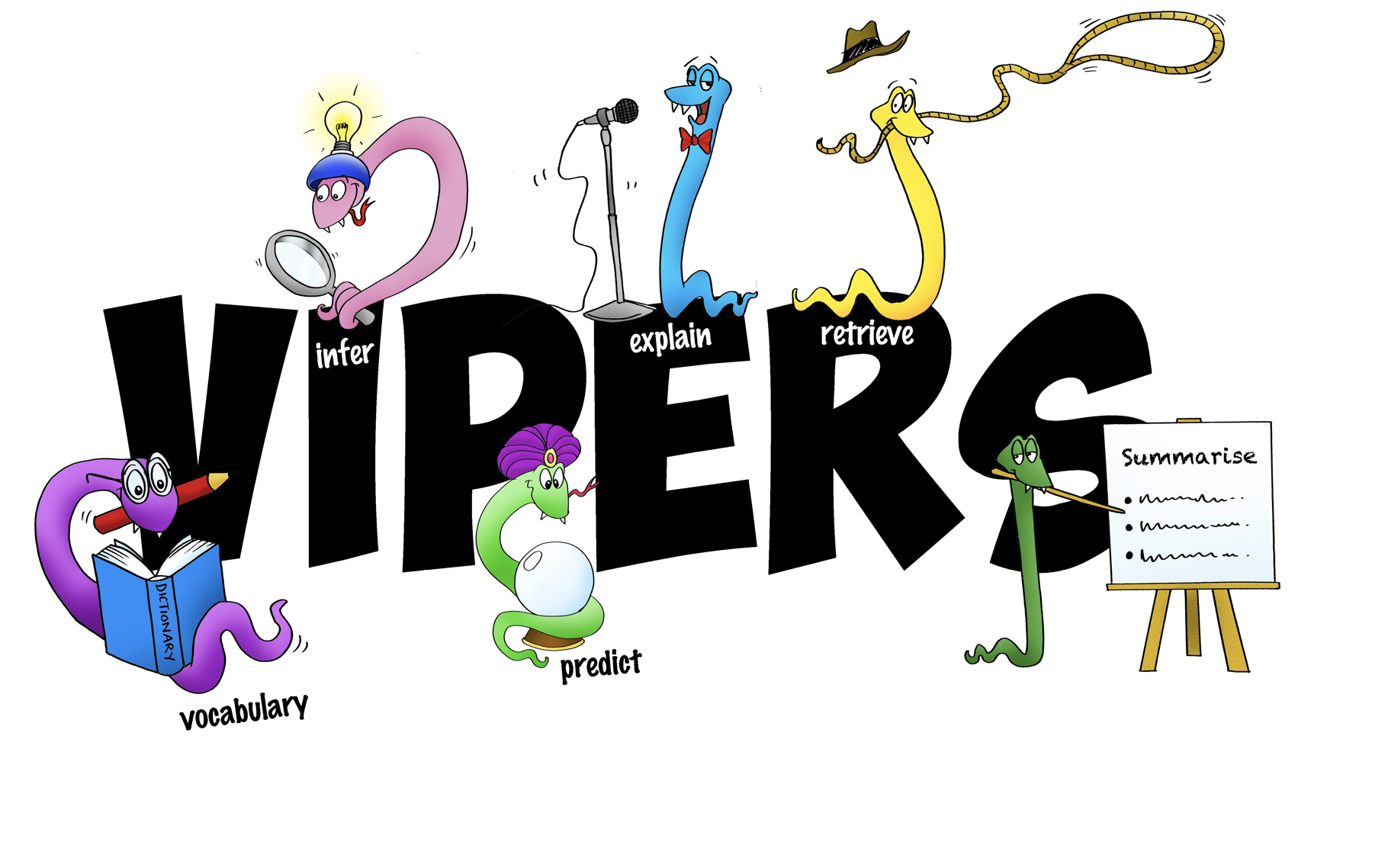
Here is an example of how children have accessed VIPERS in a lesson:
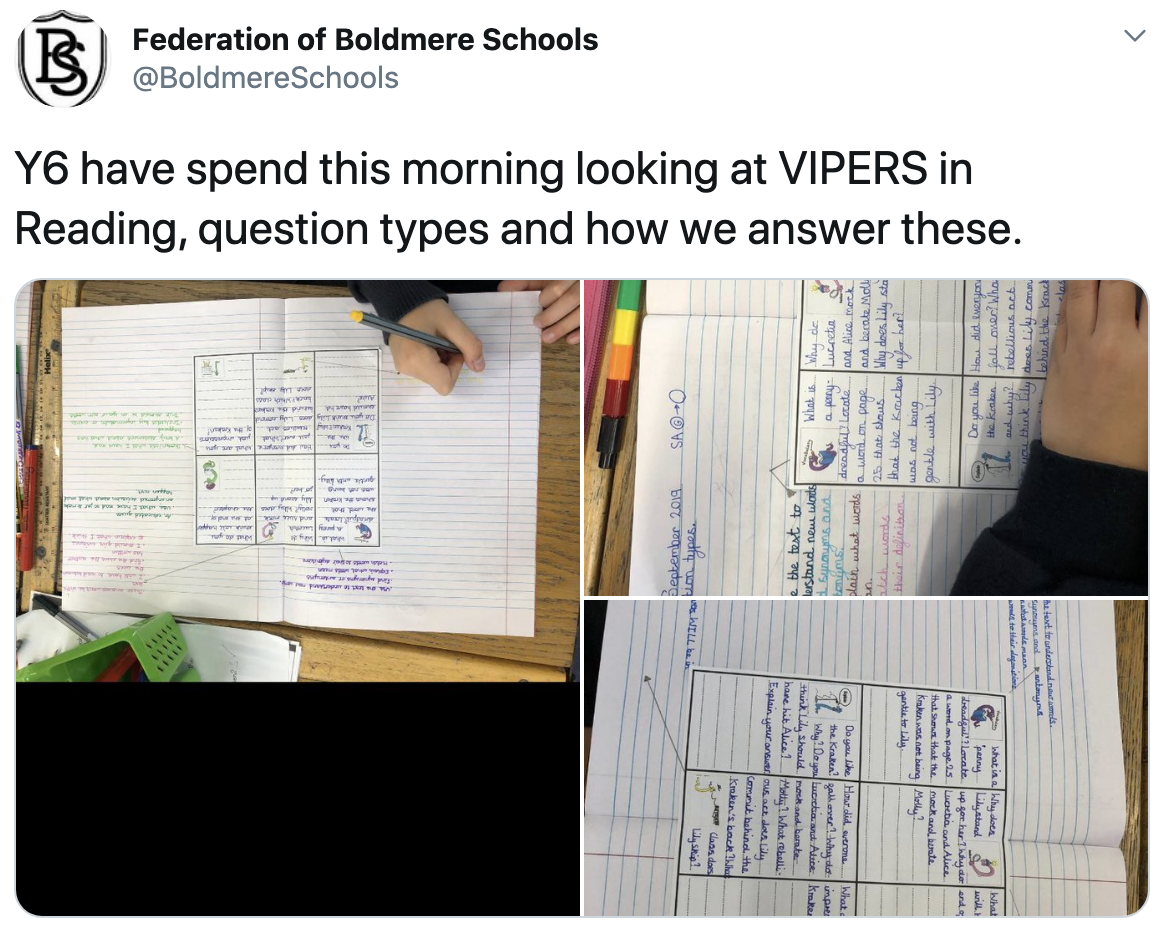
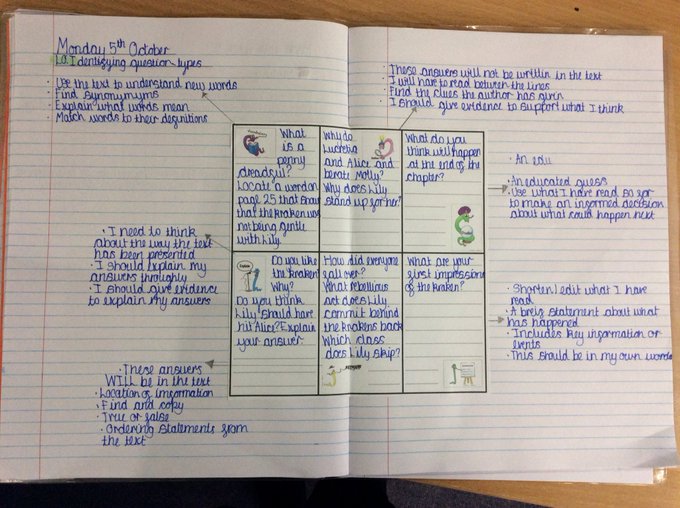
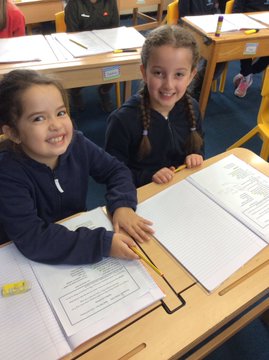
Reading Cafe
Over the course of the year, each year group holds a Reading Cafe to inspire a love of reading and introduce children to a variety of texts and genres.
To be secure readers for their year group, we assess children’s reading fluency, as well as their comprehension skills. By the end of Key Stage 2, the expectation is that children will be able to read between 90 and 120 words per minute at an age-appropriate text level.
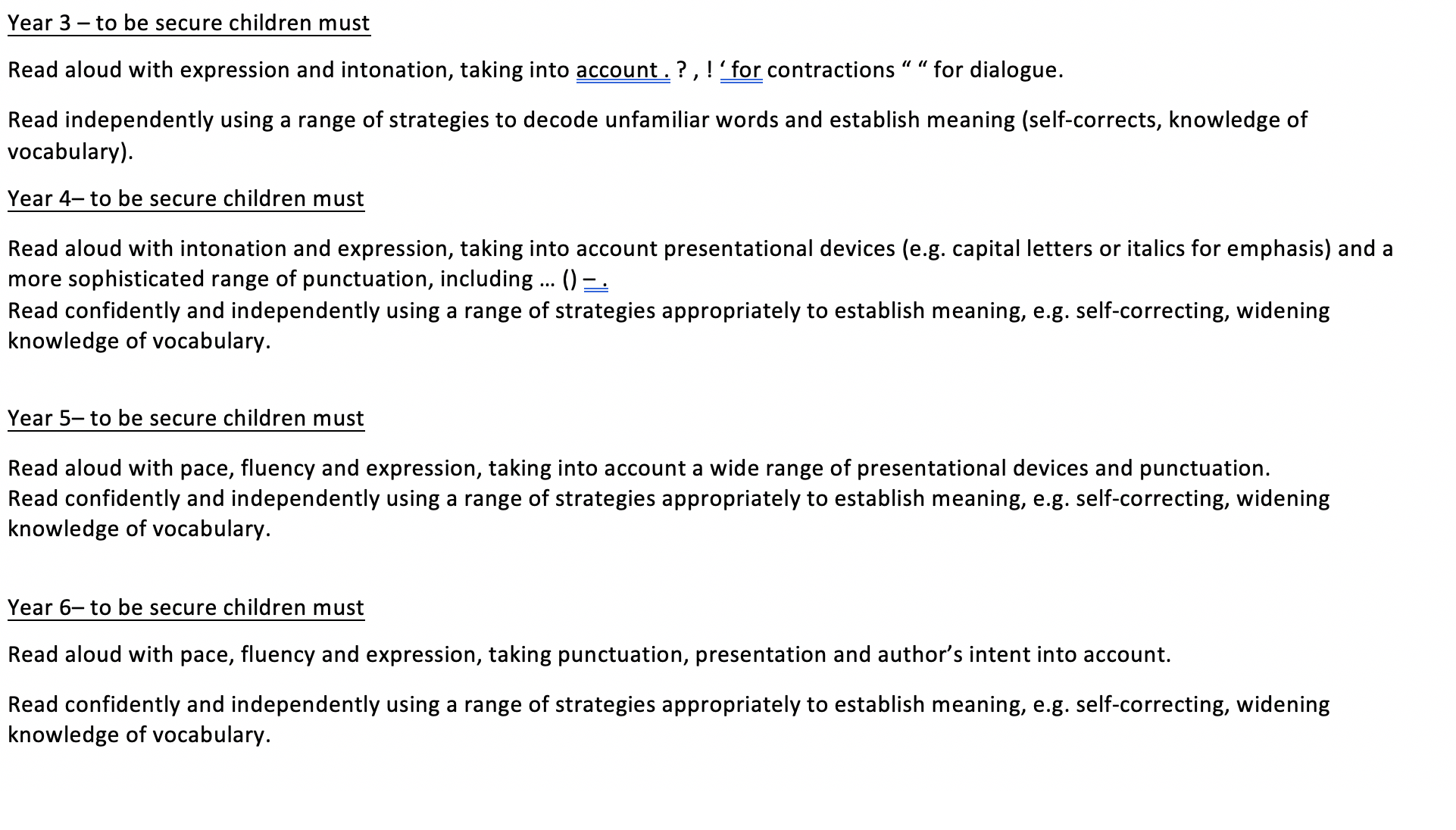
Classroom Libraries and the School Library
Each class has its own classroom library and all children have access to our extensive school library. The rich variety of books available enables the children to access a wide range of texts including: novels, poetry, newspapers, comics, graphic novels, talking books, dual-language books, dyslexia-friendly books and non-fiction texts. Children have regular access to the library and they are encouraged to take care and respect the books.
In our library, we use a reading system called Accelerated Reader. Children will bring books home linked to their reading 'number' that they achieve in half termly online STAR reading tests. For more information see:
http://www.renlearn.co.uk/wp-content/uploads/2016/12/What-Parents-need-to-know.pdf
To inspire future readers, all classes enjoy regularly using our well-stocked school library. In fact, some children love to read whenever they get the opportunity!
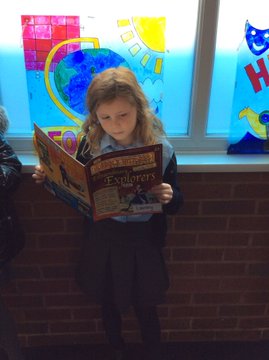
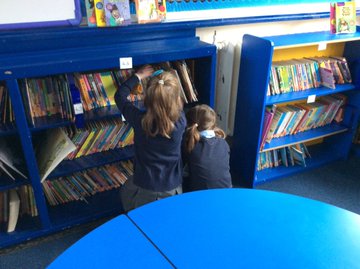
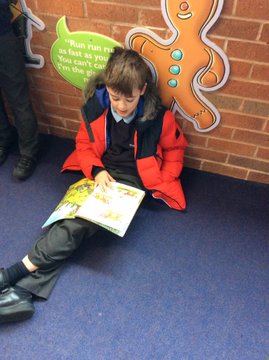
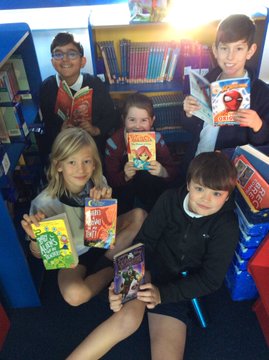
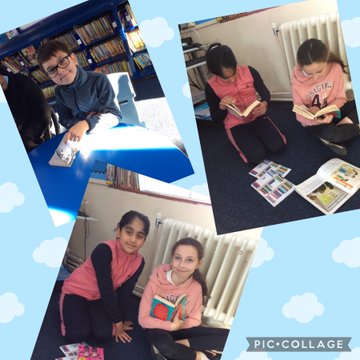
Developing a Love for Reading
Teachers are always looking for ways to develop a love of reading in children at Boldmere.
Last term, every year group had an online visit from an author:
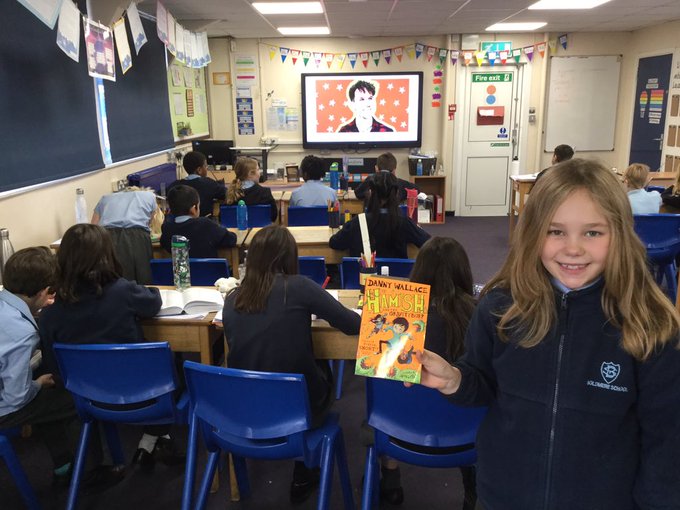
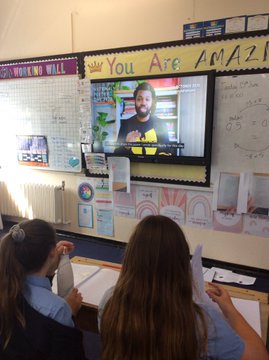
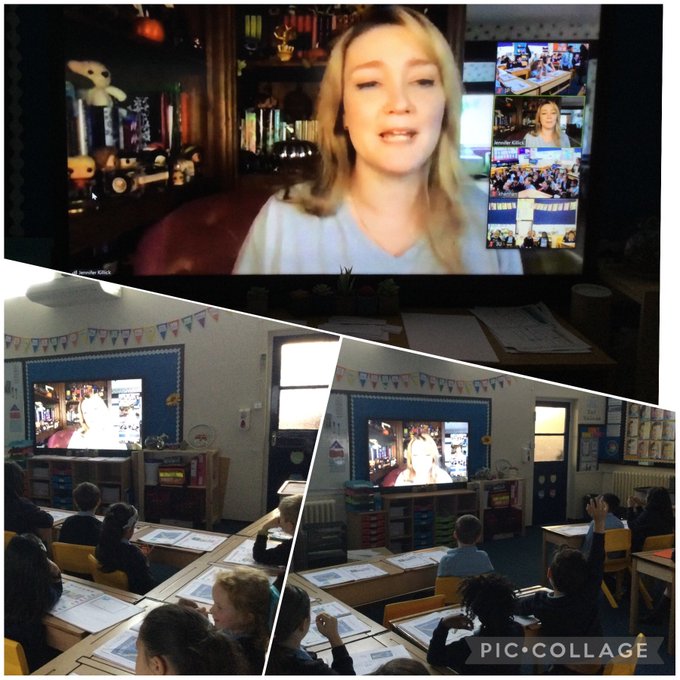
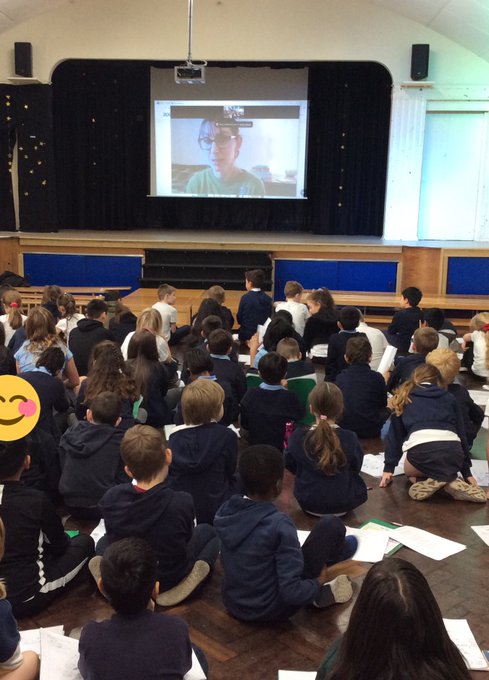
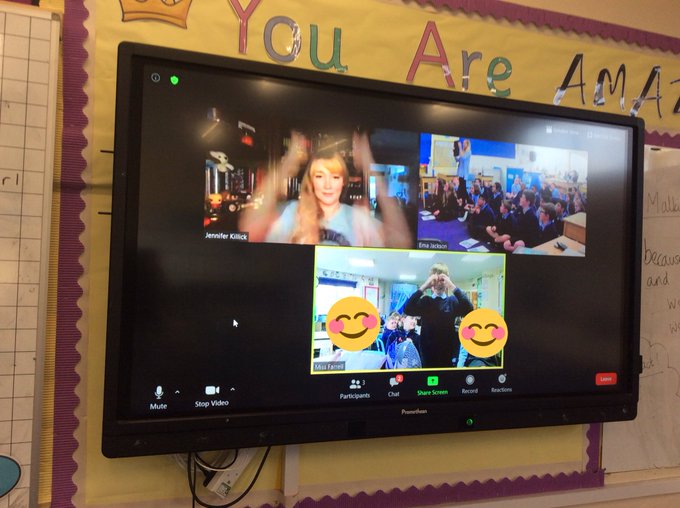
It's even better when we get replies on Twitter!
Replying to
Thanks again for inviting me to Zoom in and meet you all. It was fun!
All children have time to enjoy reading in class.
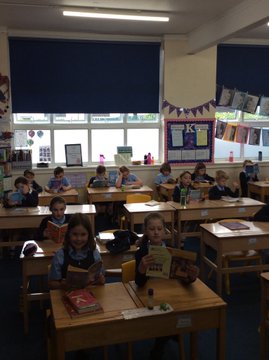
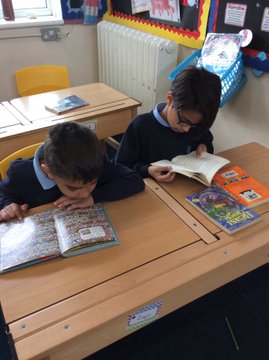
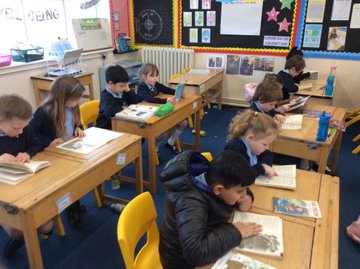
Inspiring Reading at Home
Some of our children have recreated their favourite books with their family members. Can you guess the book?

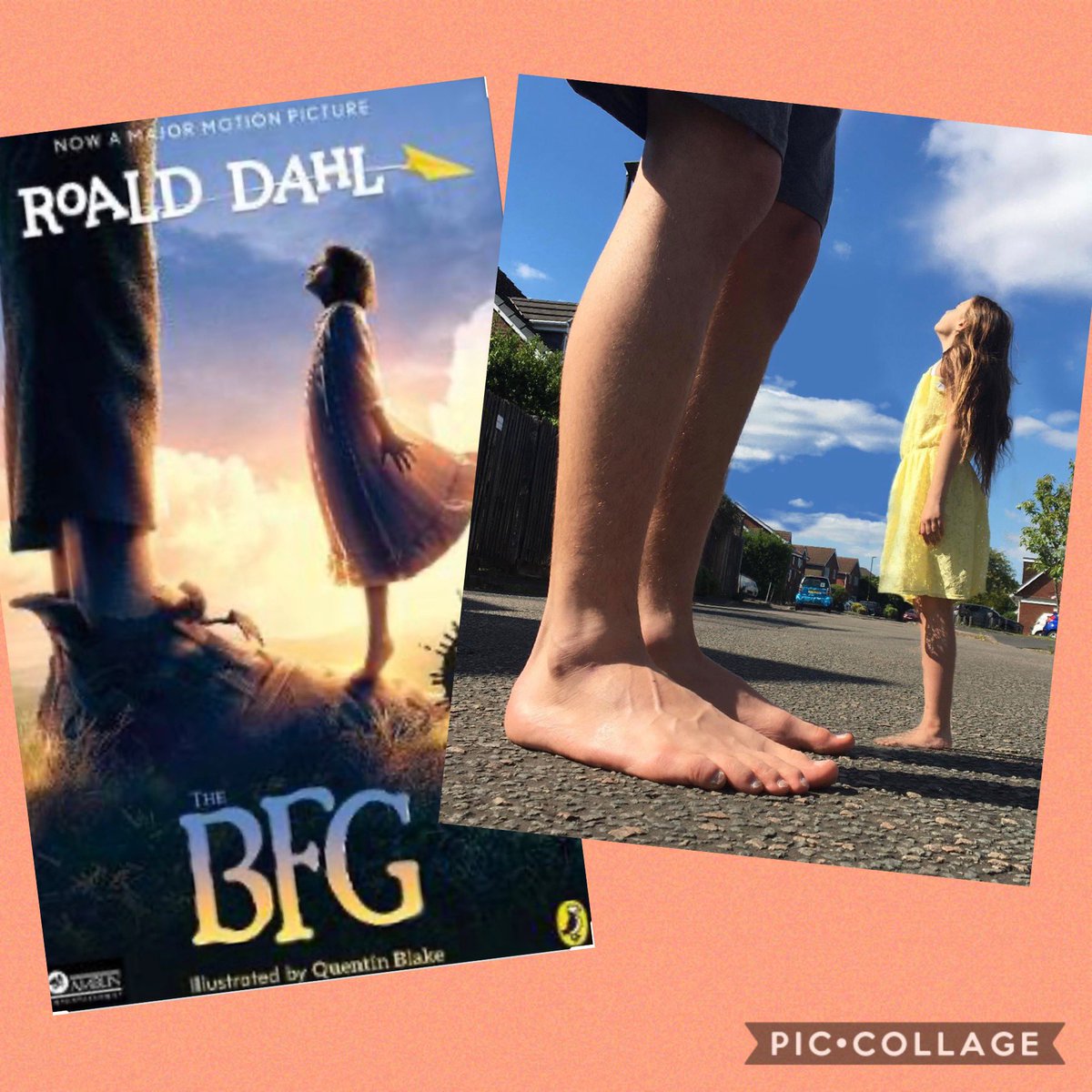
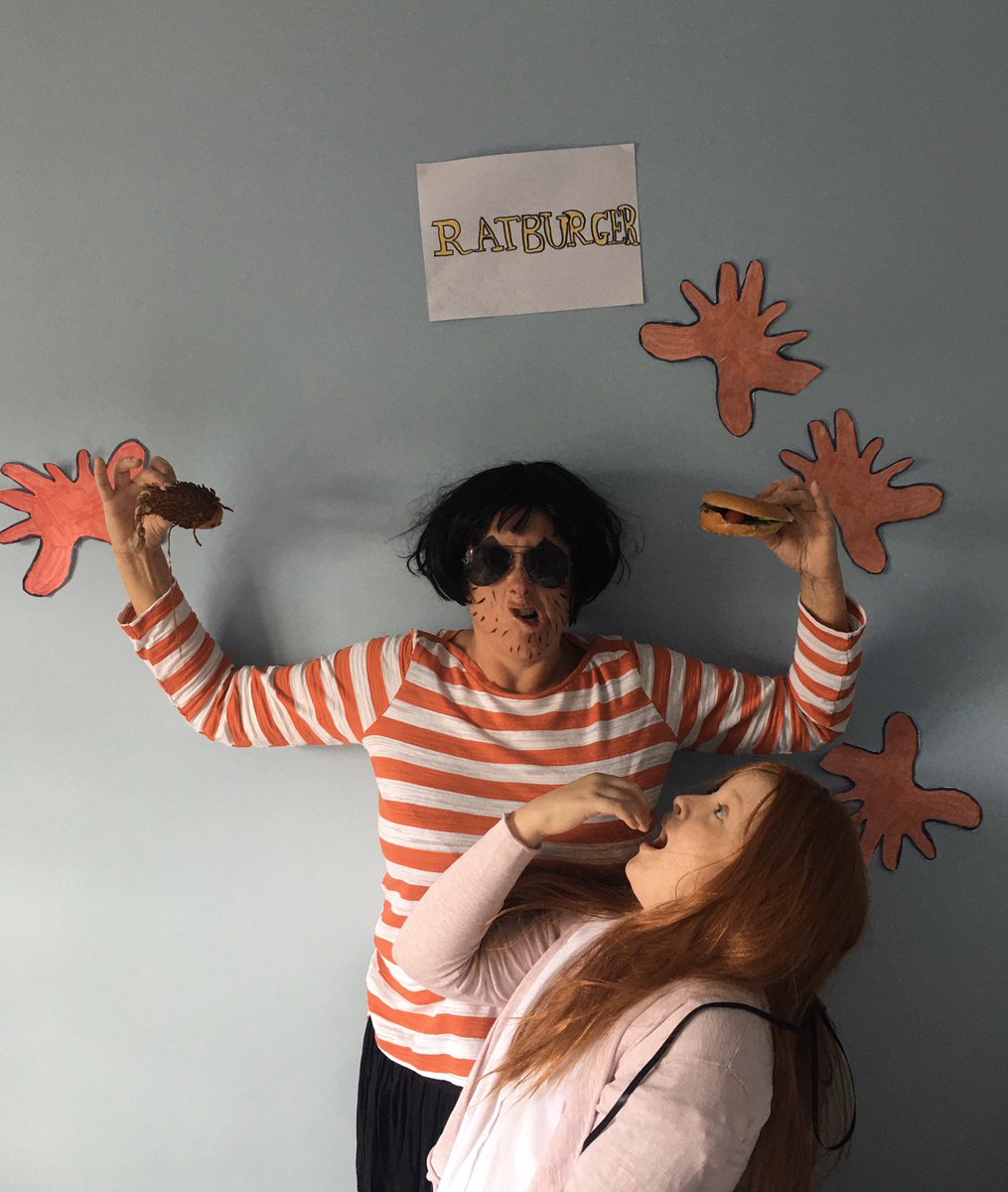
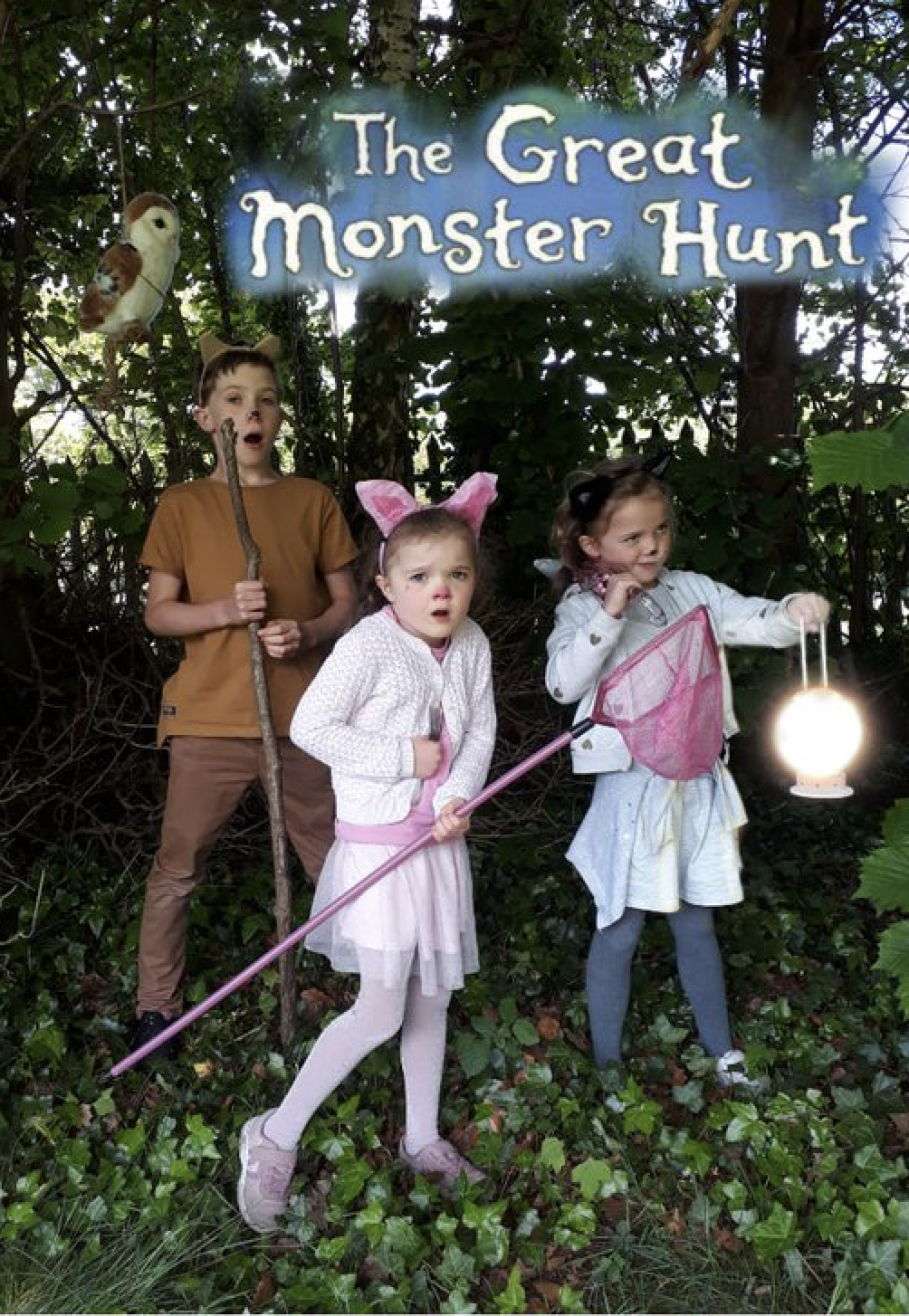
Children enjoyed redesigning the front covers to the books we read in school. Here is Lamisah's design for 'Land of Roar' and look at the reply, from the author, she received after we tweeted her image.
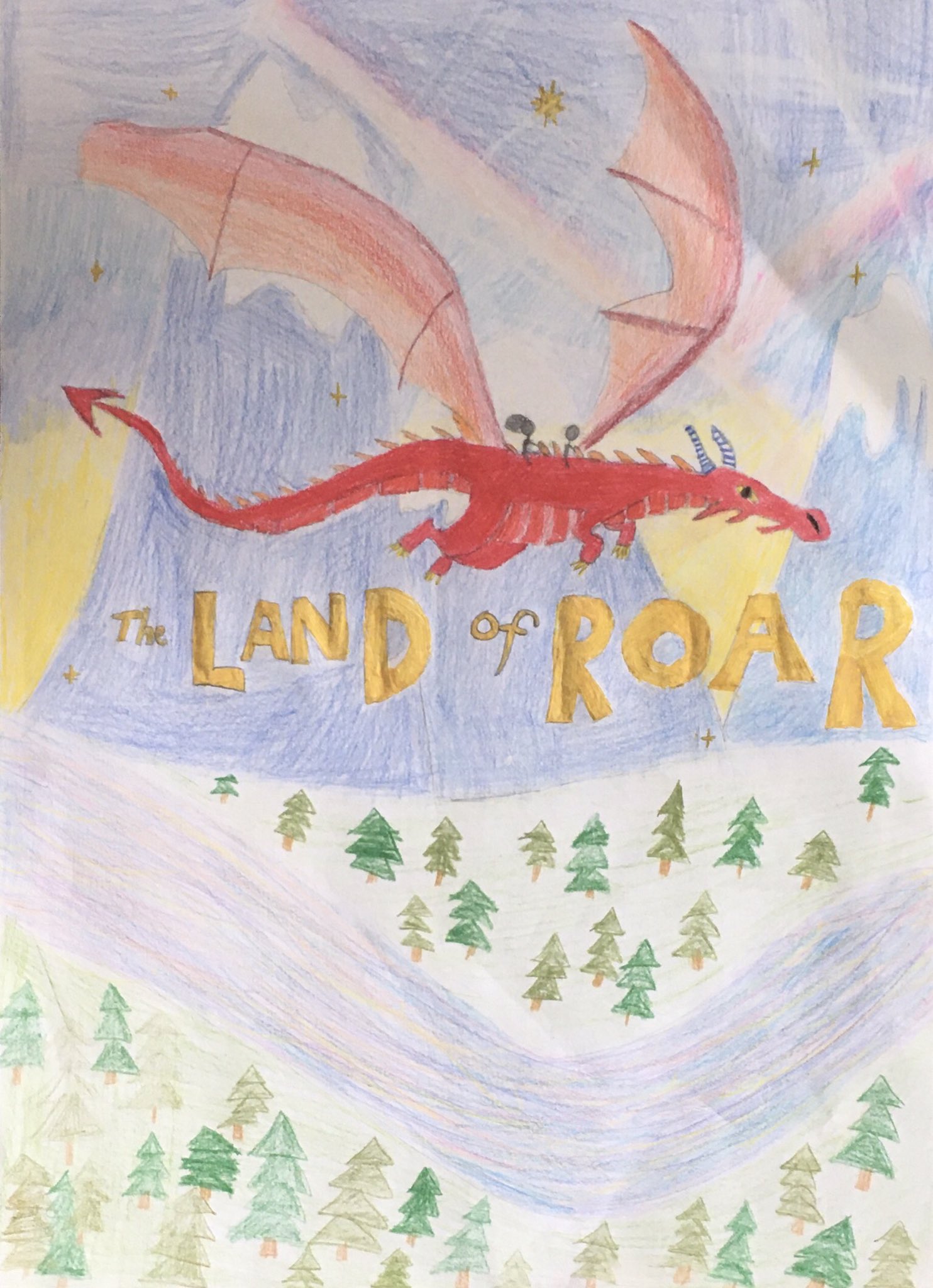
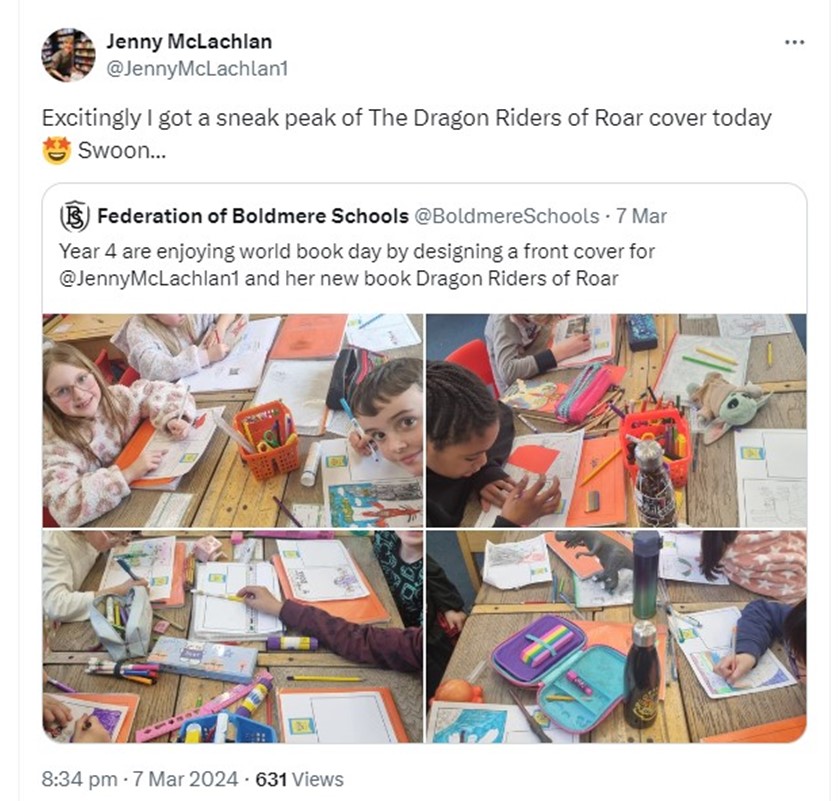
Readon.myon website to use at home
To enhance opportunities for reading at home, your child can access a variety of ebooks via www.myon.co.uk Please use your child's log in details to access the site. Enjoy! Homework may also be set on Myon by your child's classteacher.
Instructions for Using Myon at home
Family guide:
Strategies to support reading at home
Read, read and read some more! Encourage your child to take responsibility for their own reading.
Frequent reading – daily for 10 minutes
- Read independently
- Read to an adult
- Read to a sibling, friend or pet
- Read out loud and record this on a voice recorder (found on most smart phones, I pads etc). Listen back and read this again correcting any errors made or adding intonation
- Read your Accelerated Reader book. Read a comic. Read a newspaper. Read a non-fiction book
Reading around/past the word
If a child is struggling to decode or recognise a word within a text, encourage them to read past the word to the end of the sentence to see if this helps put the word in context – then come back and re-read the word using this knowledge.
60 second reads
- Ask child to select a section for their own books and count the number of words on each line (record at the end in pencil) and in total (record at the end of the section)
- Start 1minute timer, and ask child to start reading until the timer stops. Note down which line and word number they got up to and record their first score
- Start 1minute timer again and repeat the activity to try and improve the number of words read (this should improve as the text will be repeated)
- Repeat this activity over a number of days or weeks revisiting the same text after a while to improve score and develop confidence
Echo reading
- Choose a paragraph of an age appropriate text
- An adult/confident reader reads one line/sentence out loud
- Child practises fluency by echoing this (repeating the same line)
- Complete for the whole paragraph
- Swap roles and the child leads this reading
Further Resources
Please use these resources to support your reading at home and develop your love of reading!
Are you stuck and can't choose which book to read next? Have you not found your favourite book yet? Click on the link below (for Chicken House Books) to look at new releases and read the first chapter. If you like what you read, you could order it or see if it's in the school library. If it isn't, perhaps you could make a recommendation and the school might be able to buy it!
Recommended Reads for 7-9 year olds

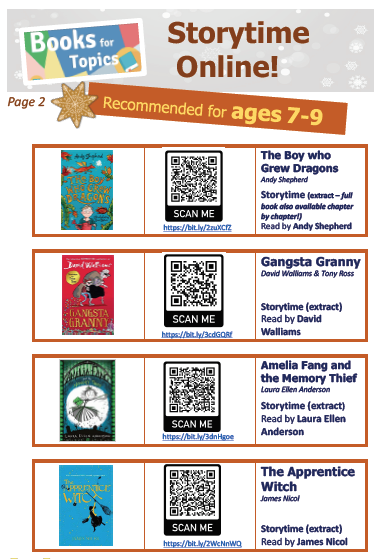
Recommended Reads for 9-11 year olds
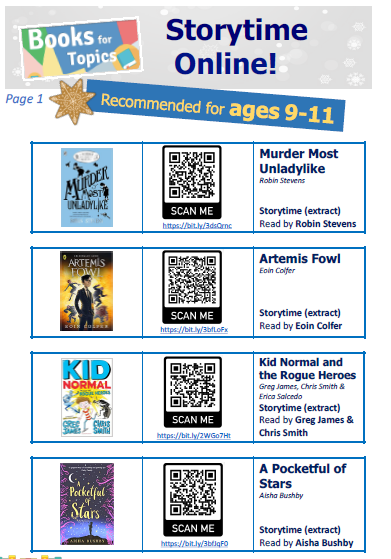
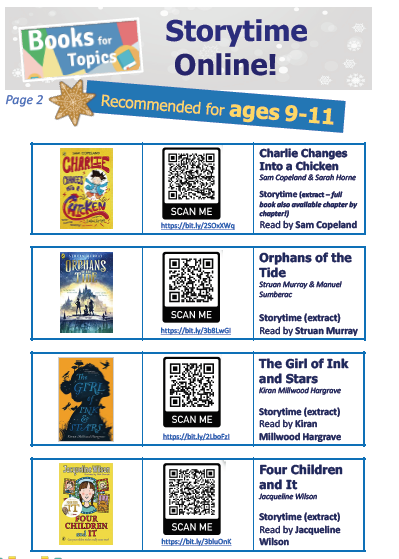
.png)
